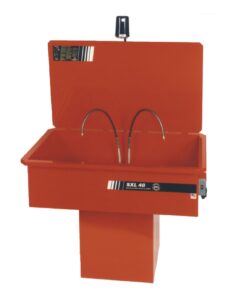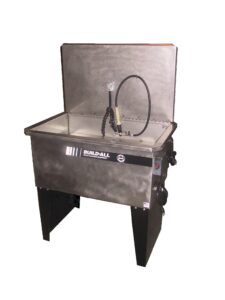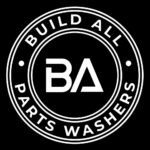

Aqueous Parts Cleaning
Aqueous parts cleaning involves the use of water or water-based detergents to clean metal surfaces. This type of cleaning is often used for delicate parts that require special care, as well as in industries where environmental concerns are a priority. It is also far less hazardous than solvent-based cleaning because it does not involve volatile organic compounds (VOCs). This method is much safer than solvent-based cleaning, but it can also be more expensive due to higher operating costs associated with heating water and buying detergent supplies.
Solvent Parts Cleaning
Solvent parts cleaning involves using chemical solvents such as alcohols, hydrocarbons, chlorinated solvents, or fluorocarbons to clean metal surfaces. This type of cleaning is ideal for removing oil and grease from metal surfaces but should not be used on plastic or other delicate materials due to its harsh nature. While this type of parts cleaner is often faster than aqueous cleaners, it can be more dangerous due to the VOCs released during the process. Additionally, the cost of purchasing and disposing of solvents can add up quickly.
Conclusion:
When it comes to choosing between aqueous and solvent-based parts cleaners for your business, there are several factors to consider. Aqueous cleaners are better for delicate materials and environmentally sensitive applications, while solvent cleaners work better for heavily contaminated surfaces like machinery components with high levels of oil or grease build-up. Ultimately, the decision will come down to weighing the costs and benefits of each method in relation to your specific needs. By understanding the differences between these two types of cleaners, you’ll be able to make an informed choice about which one is right for you. At Build-All, we can provide the correct machine for both solvent and aqueous cleaning applications.

